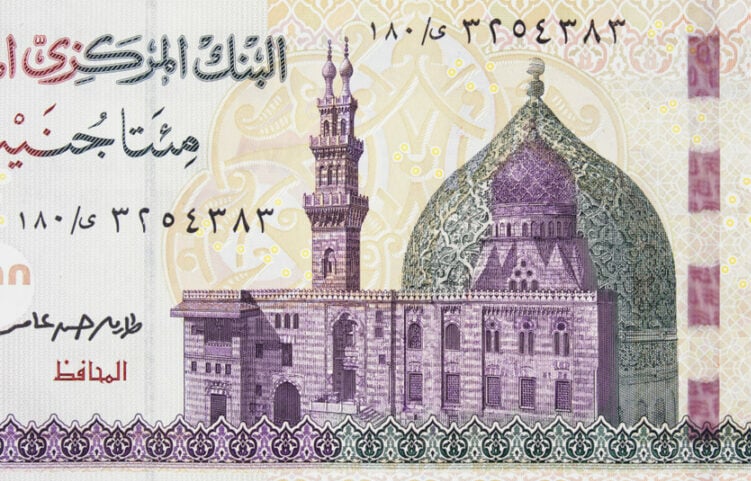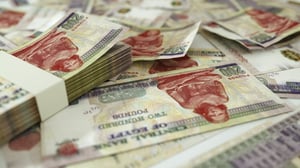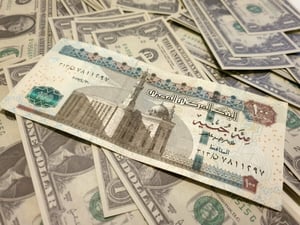Shortly after IMF President Kristalina Georgieva announced that negotiations between Egypt and the IMF had reached a “very advanced stage”, the Egyptian pound fell to a new record low.
The announcement of the final agreement with the IMF, which will allow Egypt to obtain new funding, is likely to be announced in the coming days.
The pound reached 19.6736 against the dollar on Tuesday, surpassing a record low of 19.6725 last recorded in December 2016, according to data compiled by Bloomberg.
What is happening in Egypt is a gradual and slow devaluation of the currency. Its value has fallen about 6 percent since mid-March when the pound suffered a one-day decline of 15 percent after the central bank allowed the currency to move against the dollar for the first time since 2016.
But data suggests that the IMF will demand that the government further cuts the pound’s value ahead of the final signing of the agreement with Egypt, considering that it prefers a more flexible exchange rate.
This explains the significant decline of the pound against the dollar over the past hours and indicates that the Egyptian currency will record in the coming days a faster pace of depreciation than expected.
Abu Dhabi Commercial Bank expects the pound to fall to more than 23 pounds against the dollar once Egypt reaches a deal with the IMF, from an earlier estimate a month ago that it would fall to between 21 and 22 to the dollar.
One of the reasons for the further devaluation of the currency is that the pound is still too expensive to support an economy that is in short supply of Dollars. Large external financing needs also require exchange rate flexibility. A resilient pound is key to helping the current account deficit narrow in the coming period.
Bank of America estimates Egypt’s total external financing needs for 2023 at about $58 billion, or about 14 percent of GDP.
Hence, the Egyptian government’s approval of a more flexible path for the currency.
In this context, Egyptian Planning Minister Hala El-Said referred to her openness to more flexible currency management.
In a statement to Bloomberg, she said, “We as a government agree that a flexible exchange rate is definitely good for the economy.”
Egypt has been in negotiations with the IMF since March, trying to secure financial assistance following economic shocks caused by the Russian-Ukrainian war and rising interest rates in advanced economies.
But the value of the package expected to be received by Egypt is still unknown and variable. While BNP Paribas expects Egypt to receive between $3 billion and $5 billion, Goldman Sachs estimates the loan to be worth $15 billion.
Finance Minister Mohamed Maait had earlier said Egypt was asking for “less than $15 billion, for sure.”
Egypt has received pledges of more than $22 billion in deposits and investments from its Gulf Arab allies.








